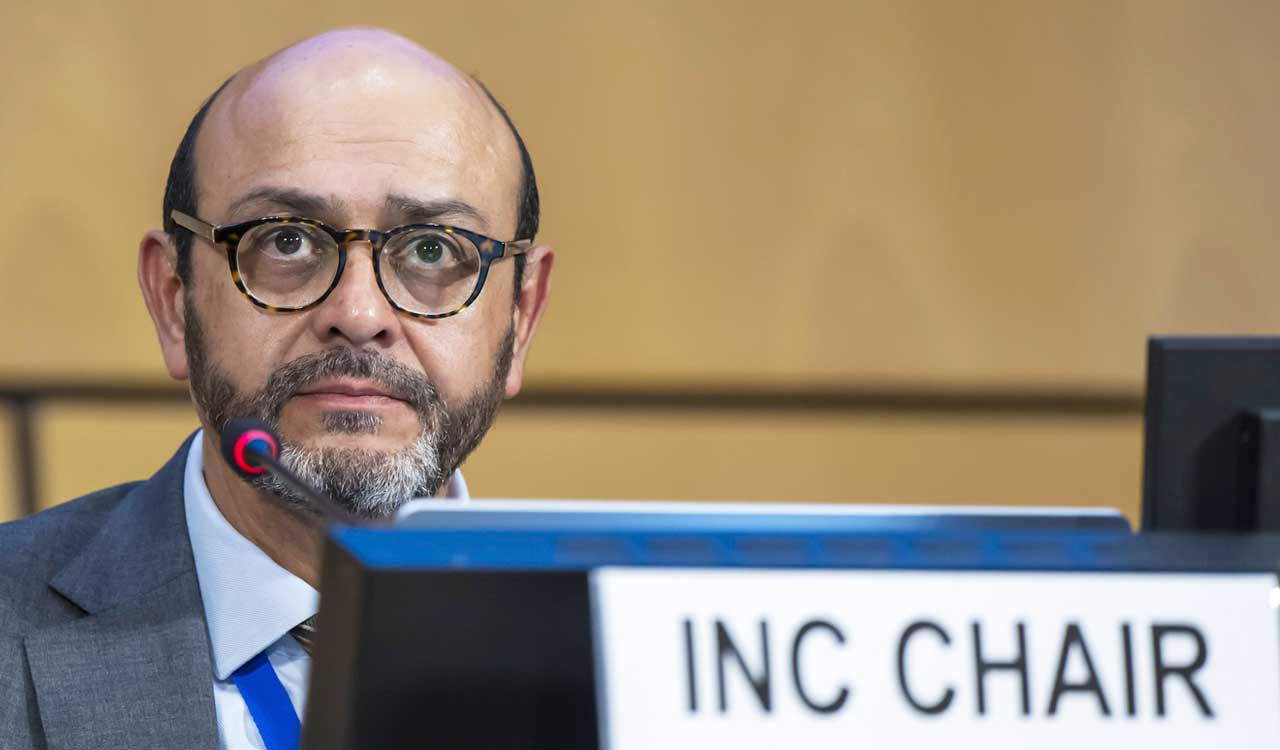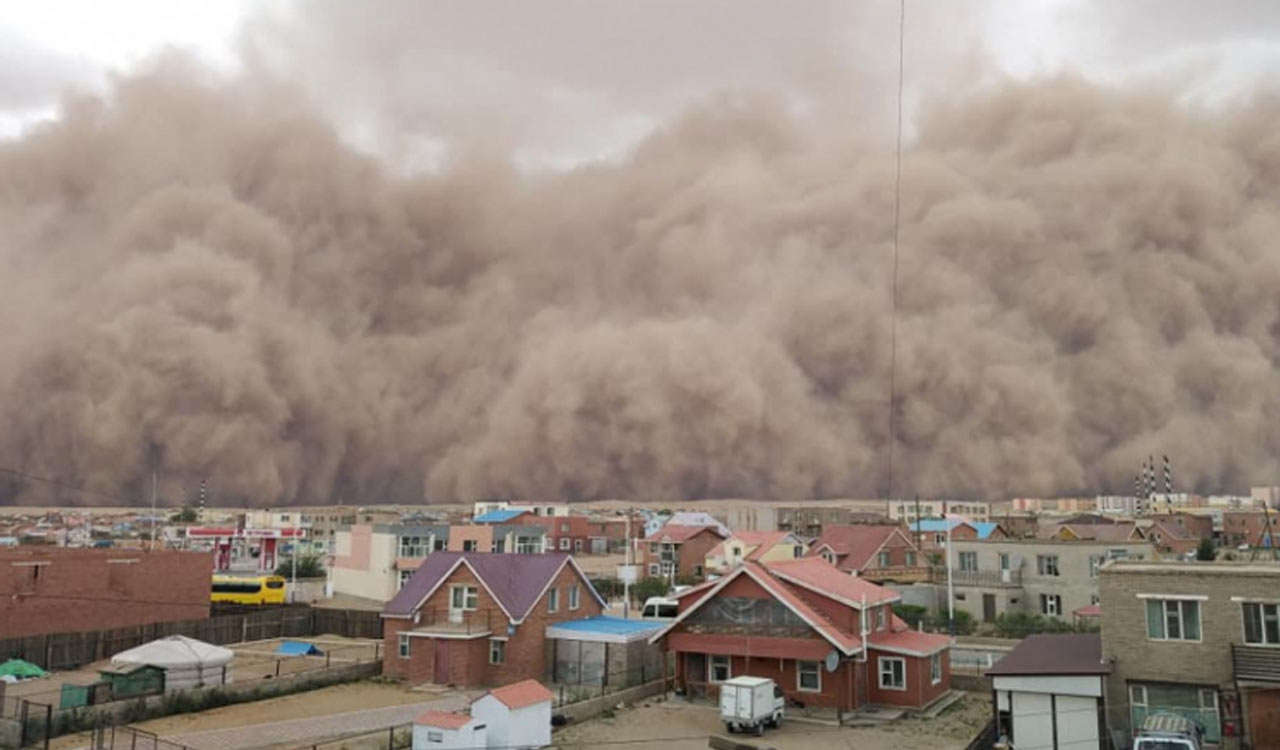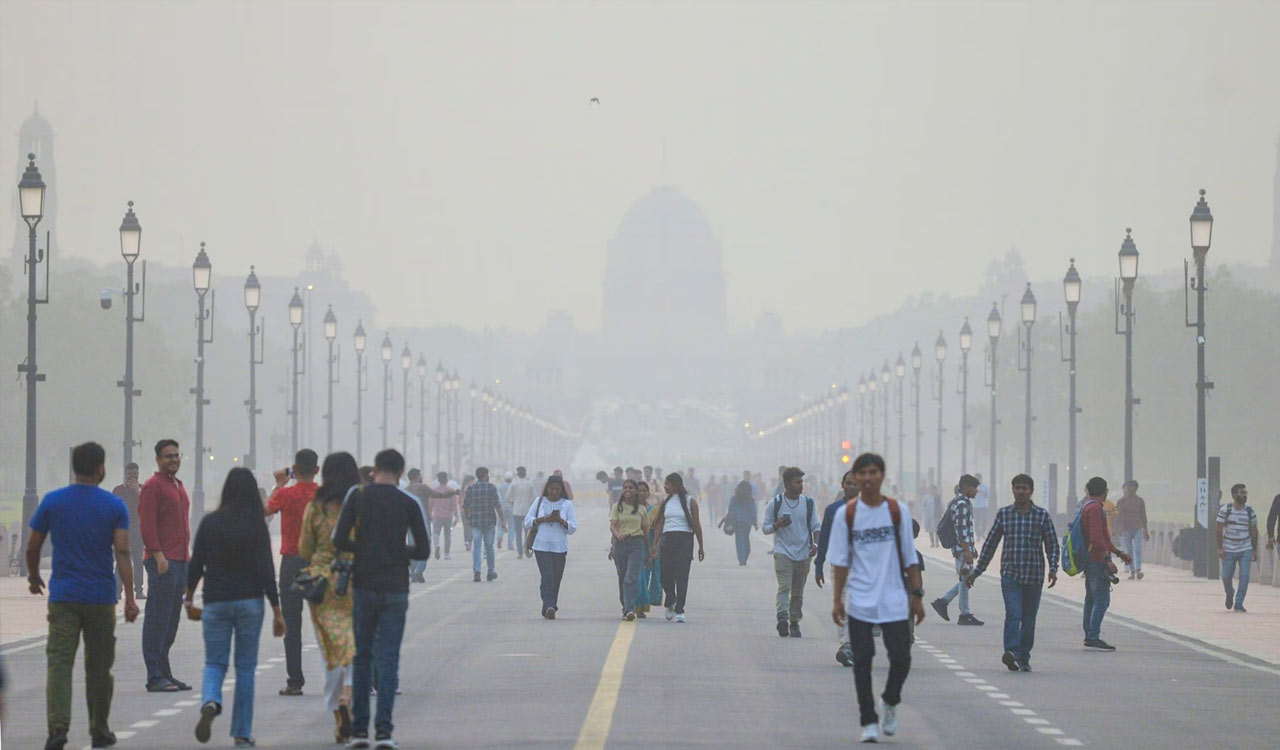UN plastics treaty talks end in deadlock as nations fail to agree
Negotiations at the UN in Geneva on a global plastics treaty have ended without an agreement. Deadlock persists over caps on plastic production versus waste management. Delegates vow to continue talks amid calls for urgent action to curb pollution.

Geneva: Negotiators working on a treaty to address the global crisis of plastic pollution won’t reach an agreement in Geneva on Friday.
Nations were meeting for an 11th day at the United Nations office in Geneva to try to complete a landmark treaty to end the plastic pollution crisis. They remain deadlocked over whether the treaty should reduce the exponential growth of plastic production and put global, legally binding controls on toxic chemicals used to make plastics.
The negotiations at the UN hub were supposed to be the last round and produce the first legally binding treaty on plastic pollution, including in the oceans. But just like at the meeting in South Korea last year, they’re leaving without a treaty.
Luis Vayas Valdivieso, the chair of the negotiating committee, wrote and presented two drafts of treaty text in Geneva based on the views expressed by the nations. The representatives from 184 countries did not agree to use either one as the basis for their negotiations.
Valdivieso said Friday morning, as the delegates reconvened in the assembly hall, that no further action is being proposed at this stage on the latest draft.
Delegates are still meeting and have not decided on the next steps yet.
Representatives of Norway, Australia, Tuvalu, and other nations said they were deeply disappointed to be leaving Geneva without a treaty. Madagascar said the world is “expecting action, not reports from us”.
European Commissioner Jessika Roswall said the European Union and its member states had higher expectations for this meeting and while the draft falls short on their demands, it’s a good basis for another negotiating session.
“The Earth is not ours only. We are stewards for those who come after us. Let us fulfill that duty,” she said.
China’s delegation said the fight against plastic pollution is a long marathon and that this temporary setback is a new starting point to forge consensus. It urged nations to work together to offer future generations a blue planet without plastic pollution.
The biggest issue of the talks has been whether the treaty should impose caps on producing new plastic or focus instead on things like better design, recycling and reuse. Powerful oil- and gas-producing nations and the plastics industry oppose production limits. They want a treaty focused on better waste management and reuse.
Saudi Arabia said both drafts lacked balance, and Saudi and Kuwaiti negotiators said the latest proposal takes other states’ views more into account. It addressed plastic production, which they consider outside the scope of the treaty.
That draft, released early Friday, did not include a limit on plastic production, but recognised that current levels of production and consumption are “unsustainable” and global action is needed.
New language had been added to say these levels exceed current waste management capacities and are projected to increase further, “thereby necessitating a coordinated global response to halt and reverse such trends.”
The objective of the treaty was revamped to state that the accord would be based on a comprehensive approach that addresses the full lifecycle of plastics. It talked about reducing plastic products containing “a chemical or chemicals of concern to human health or the environment,” as well as reducing of single-use or short-lived plastic products.
It was a much better, more ambitious text, though not perfect. But each country came to Geneva with a lot of “red lines,” said Magnus Heunicke, the Danish environment minister. Denmark holds the rotating presidency of the Council of Europe.
“To be very clear, a compromise means that we have to bend our red lines,” he said.
For its part, Iran said it’s a disappointing moment and faulted “non-transparent and non-inclusive processes on unrealistic elements,” particularly chemicals.
For any proposal to make it into the treaty, every nation must agree. India, Saudi Arabia, Iran, Kuwait, Vietnam, and others have said that consensus is vital to an effective treaty. Some countries want to change the process so decisions may be made by a vote if necessary.
Graham Forbes, head of the Greenpeace delegation in Geneva, urged delegates in that direction.
“We are going in circles. We cannot continue to do the same thing and expect a different result,” he said as Friday’s meeting was ending.
Thursday was the last scheduled day of negotiations, but work on the revised draft continued into Friday.
Every year, the world makes more than 400 million tons of new plastic, and that could grow by about 70% by 2040 without policy changes. About 100 countries want to limit production. Many have said it’s also essential to address toxic chemicals used to make plastics.
Science shows what it will take to end pollution and protect human health, said Bethanie Carney Almroth, an ecotoxicology professor at Sweden’s University of Gothenburg who co-leads the Scientists’ Coalition for an Effective Plastics Treaty.
The science supports addressing the full lifecycle of plastics, beginning with extraction and production, and restricting some chemicals to ensure plastics are safer and more sustainable, she added.
“The science has not changed,” she said. “It cannot be down negotiated.”
Environmentalists, waste pickers and Indigenous leaders and many business executives travelled to the talks to make their voices heard. Some used creative tactics, but are leaving disappointed. Indigenous leaders sought a treaty that recognises their rights and knowledge.
Related News
-
Russian drone strike kills one in Odesa ahead of Geneva peace talks
-
China and Mongolia are battling to control massive dust storms
-
Air pollution crisis: Delhi HC advises lawyers to avail hybrid mode for appearing in court
-
Andhra Pradesh wins National Energy Conservation Award 2025 for fourth consecutive year
-
Hyderabad Police transfers 63 inspectors in major reshuffle
2 mins ago -
EAGLE Force, Cyberabad Police arrest three cocaine peddlers in Kondapur
7 mins ago -
BRS wins Raikal municipal chairman post with seven votes
36 mins ago -
Congress wins five municipalities; Independents clinch two, BRS captures one in erstwhile Adilabad
39 mins ago -
AI will augment human abilities, says Blue Machines COO
43 mins ago -
Hyderabad: Punjagutta Police arrest salesman for stealing 1 kg gold from Joyalukkas
48 mins ago -
Supreme Court advises caution in pre-marital relationships
49 mins ago -
Delhi High Court grants temporary relief to Rajpal Yadav in cheque cases
52 mins ago




